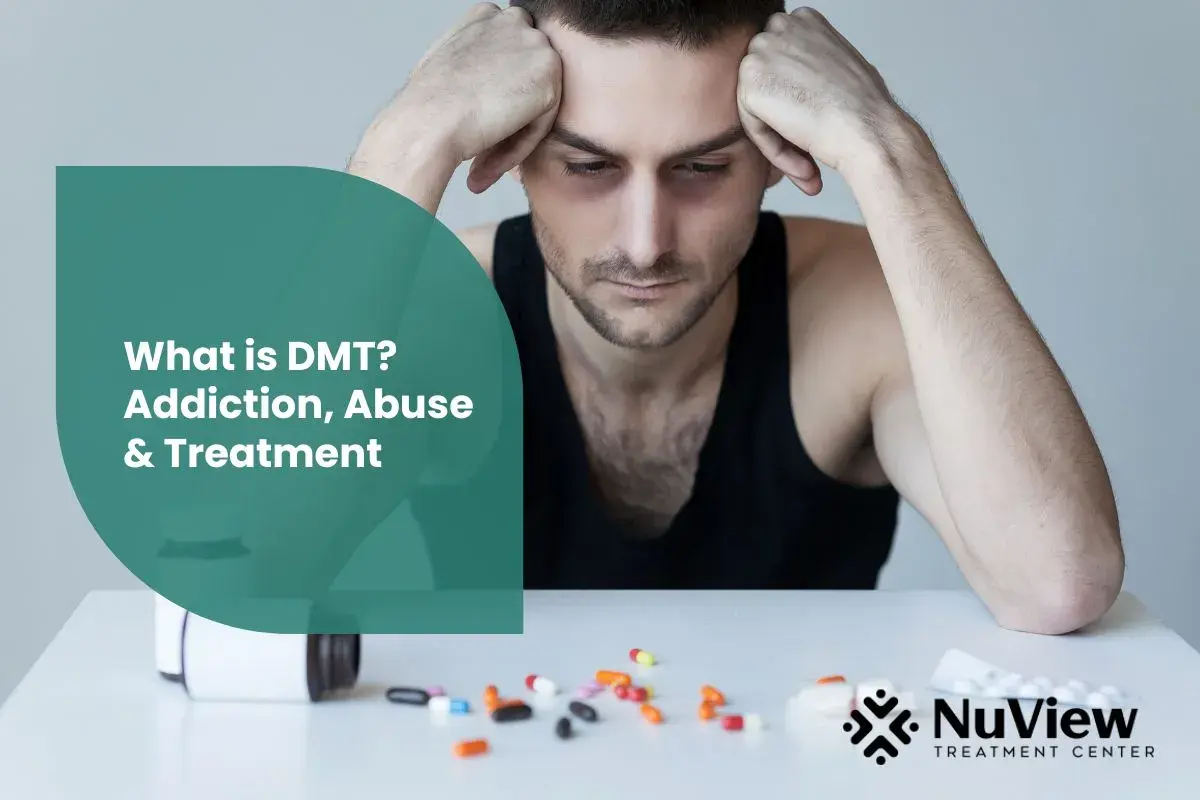Substance Abuse Triggers Quiz
Relapse is a common challenge for individuals in recovery from drug or alcohol addiction, with approximately 40-60% experiencing relapse at some point. Genetic factors, influenced by one's environment, contribute significantly, accounting for about 40% to 60% of a person's addiction risk. These statistics shed light on the widespread impact of substance use disorders in the United States.
In 2017 alone, a staggering 19.7 million American adults aged 12 and older battled with a substance use disorder, and nearly 74% of adults facing a substance use disorder struggled specifically with alcohol addiction. These numbers highlight the urgent need for effective prevention, treatment, and ongoing support for individuals grappling with substance abuse.
What are Substance Abuse Triggers?
Substance abuse triggers are situations, emotions, or stimuli that can increase the risk of relapse or substance use in individuals recovering from addiction. These triggers can vary from person to person. They may include external factors such as specific people, places, or events and internal factors like stress, cravings, or emotional states.
Identifying substance abuse triggers is an essential part of relapse prevention. By understanding and recognizing these triggers, individuals can develop strategies to avoid or effectively cope with them. This may involve changing their environment, developing healthier coping mechanisms, seeking support from others, or practicing self-care techniques.
It is important to note that substance abuse triggers can be unique to each individual, and the process of identifying them requires self-awareness and reflection. By actively addressing and managing triggers, individuals can strengthen their recovery journey and reduce the risk of relapse.
The Substance Abuse Triggers Quiz is designed to help individuals assess their understanding of substance abuse triggers and their impact on the risk of relapse. By taking this interactive quiz, you will have the opportunity to evaluate your knowledge and awareness of the various factors that can contribute to substance abuse relapse.
This quiz serves as a self-assessment tool to gauge your current understanding of substance abuse triggers. It aims to provide valuable insights into your ability to recognize and manage these triggers effectively, ultimately enhancing your relapse prevention strategies.
Get Started With Nuview Treatment Center
Our dedicated professional staff is here to guide you or your loved one on the journey to lasting recovery, offering support every step of the way.
How to Take this Substance Abuse Triggers Quiz?
Start the quiz: Begin by answering the questions related to substance abuse triggers to evaluate your knowledge and understanding of this topic.
Select the correct answers: Read each question carefully and choose the most appropriate response from the given options. Consider your personal experiences and knowledge while selecting your answer.
Provide open-ended responses: For questions that require an open-ended response, take the time to reflect on your triggers and provide thoughtful answers based on your experiences.
Complete the quiz: Continue answering all the questions until you have provided a response for each one.
Review your answers: Before submitting the quiz, review your answers to ensure accuracy and completeness.
Submit your quiz: If there is a submit button, click it to receive your quiz results and feedback. If not, proceed to the next step.
Evaluate your results: Once you have completed the quiz, assess your responses and consider the feedback provided. This will help you gain insights into your understanding of substance abuse triggers and areas where you may need to focus on improvement.
Reflect on your quiz results: Take some time to reflect on your quiz results and consider how you can apply this knowledge to your own relapse prevention plan. Identify any areas where you may need to strengthen your understanding or develop strategies to manage triggers better.
Seek additional support if needed: If the quiz results indicate areas for improvement or require further guidance, consider reaching out to professionals, such as healthcare providers, counselors, or support groups, who can provide personalized assistance and support.
For Whom is this Substance Abuse Triggers Quiz Designed?
The Substance Abuse Triggers Quiz is designed for individuals seeking to evaluate their knowledge and awareness of substance abuse triggers and their impact on the risk of relapse. This quiz is suitable for anyone who wants to assess their understanding of the various factors that can contribute to substance abuse relapse, regardless of their current stage of recovery.
Whether you are in the early stages of recovery, maintaining long-term sobriety, or supporting someone in their recovery journey, this quiz can provide valuable insights and help you identify areas for improvement in your relapse prevention strategies. It is designed to be accessible and informative for individuals seeking to enhance their understanding of substance abuse triggers and develop effective coping mechanisms.
By taking the Substance Abuse Triggers Quiz, individuals can better understand their personal triggers and strengthen their relapse prevention plans, leading to improved chances of long-term recovery.
Get Started With Nuview Treatment Center
How can I Identify Substance Abuse Triggers?
Identifying substance abuse triggers is an important step in relapse prevention. Here are some strategies to help you identify your personal substance abuse triggers:
Self-reflection: Take time to reflect on your past substance use experiences and identify situations, emotions, or patterns that have led to substance abuse.
Keep a journal: Maintain a journal to track your thoughts, feelings, and behaviors related to substance use. Look for patterns and commonalities that may indicate triggers.
Seek professional guidance: Work with a therapist or counselor who specializes in addiction to explore and identify your triggers in a supportive and therapeutic environment.
Recognize high-risk situations: Pay attention to environments, people, or situations that have historically been associated with substance use or cravings.
Note emotional states: Be aware of your emotional states, such as stress, anxiety, boredom, or loneliness, as these can often be triggers for substance abuse.
Monitor cravings: Pay attention to intense cravings or urges for substances and try to identify the underlying triggers that may be causing them.
Seek input from others: Engage in open and honest conversations with trusted friends, family members, or support groups who can provide insights into your behaviors and potential triggers.
Evaluate past relapses: Reflect on any previous instances of relapse and analyze the circumstances leading up to them to identify common triggers.
Stay vigilant and open-minded: Stay alert to new or unexpected triggers that may arise during your recovery journey, and be willing to adjust your relapse prevention strategies accordingly.
Remember, identifying substance abuse triggers is a personal and ongoing process. By being proactive and self-aware, you can better equip yourself to manage and avoid potential triggers, ultimately supporting your long-term recovery goals.
How can I Handle Substance Abuse Triggers?
Handling substance abuse triggers can be challenging, but with the right strategies and support, you can effectively manage them. Here are some techniques to help you handle substance abuse triggers:
Stay connected with sober individuals and support groups: Surround yourself with a strong support system of sober friends, family, or support groups who understand your journey and can provide encouragement and guidance during challenging times.
Develop healthy coping mechanisms: Explore and practice healthy coping mechanisms such as exercise, mindfulness, deep breathing exercises, engaging in hobbies, or pursuing creative outlets. These activities can help distract your mind and provide alternative ways to manage stress or emotions.
Create a relapse prevention plan: Work with a therapist or counselor to develop a relapse prevention plan that includes strategies for handling triggers. This plan may include specific actions, coping techniques, and a list of emergency contacts to reach out to in times of need.
Taking our relapse prevention quiz can further complement your plan by providing a self-assessment tool to evaluate your understanding and readiness to manage triggers. Together, these strategies can significantly contribute to your journey of maintaining long-term recovery.
Engage in self-care: Prioritize self-care activities that promote physical, emotional, and mental well-being. This can include getting enough sleep, maintaining a balanced diet, practicing relaxation techniques, engaging in activities that bring you joy, and seeking professional help when needed.
Practice mindfulness and self-awareness: Cultivate mindfulness by being present in the moment and aware of your thoughts, emotions, and physical sensations. This can help you recognize triggers as they arise and consciously choose healthier responses.
Modify your environment: Make changes to your physical environment to minimize exposure to triggers. This could involve avoiding certain places or events associated with substance use or making adjustments to your daily routine to create a healthier and more supportive environment.
Develop and utilize healthy coping strategies: Explore and implement healthy coping strategies that work for you, such as engaging in regular exercise, practicing relaxation techniques, journaling, or seeking therapy. These strategies can provide alternative ways to manage stress and prevent relapse.
Practice self-compassion: Be kind and understanding toward yourself during the recovery process. Recognize that handling triggers can be challenging, and it's important to treat yourself with compassion and patience.
Remember, everyone's journey is unique, and finding effective ways to handle substance abuse triggers may require trial and error. Stay connected with a supportive network, seek professional guidance when needed, and prioritize your well-being as you navigate the path to recovery.
Disclaimer: This quiz is provided for informational purposes only and should not be considered medical advice. It is not intended to diagnose or treat any condition related to alcoholism or alcohol use disorder. For professional advice, evaluation, and personalized guidance, it is important to consult with a qualified healthcare professional or addiction specialist.
Limitations and Accuracy: This quiz is designed to offer general insights into alcohol consumption habits and risk factors associated with alcoholism. However, it has limitations and may not capture the full complexity of an individual's circumstances. The accuracy of the results depends on the honesty and accuracy of the information provided. It is essential to understand that self-assessment tools cannot replace professional evaluation.
Confidentiality: We prioritize the privacy and confidentiality of our users. Any data collected from this quiz will be kept confidential and not shared with any third parties. Your personal information and quiz responses will be securely stored and used solely to generate quiz results and improve our services.
- Substance Abuse Triggers Quiz
- What are Substance Abuse Triggers?
- How to Take this Substance Abuse Triggers Quiz?
- For Whom is this Substance Abuse Triggers Quiz Designed?
- How can I Identify Substance Abuse Triggers?
- How can I Handle Substance Abuse Triggers?
- Substance Abuse Triggers Quiz
- What are Substance Abuse Triggers?
- How to Take this Substance Abuse Triggers Quiz?
- For Whom is this Substance Abuse Triggers Quiz Designed?
- How can I Identify Substance Abuse Triggers?
- How can I Handle Substance Abuse Triggers?
Get Help Today!
Everyone is Welcome Here and We All Have Your Back
Your healing journey deserves a personalized approach. At NuView, we integrate expertise in behavioral therapy, mental health, and substance use treatment to create a customized recovery plan tailored to your unique needs.
Connect with our Admissions Specialists today.







Written By
Dr. Ryan Peterson